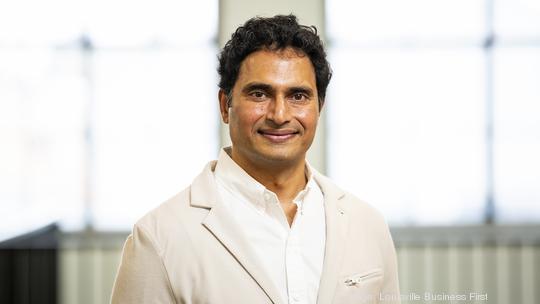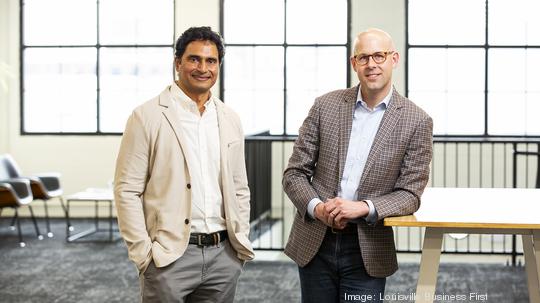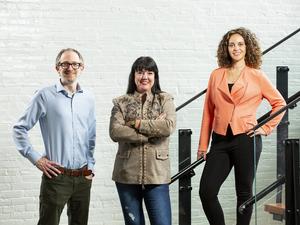
Srinivasa "Raju" Eedarapalli has always been able to see patterns.
It was something he first recognized in himself as a systems analyst at Infosys, noticing similarities between the programs he was writing that could have been automated. Over the course of his near three-decade career, the ability to identify those repetitive patterns in software eventually became the genesis for his own business venture.
Eedarapalli is the founder and CEO of pramā, a Louisville-based platform-as-a-service (PaaS) startup that aims to make enterprise-class software solutions more affordable and accessible to all businesses. In a recent interview, Eedarapalli said the company is on a mission to "democratize digital" through its cloud-native, low-code platform.
"The [low-code] space itself is not unique, but we are unique because we are actually changing the way software development is done," Eedarapalli said, noting the company has applied for five patents and has seven others in the works. "We're completely changing the way the game is played."
Impact at scale
Eedarapalli, a native of Visakhapatnam, India, first came to Louisville in 1994 for a role at GE Appliances.
There, as a part of the company's architecture group, he helped build code generators and frameworks that allowed for the development of a large number of software applications over the span of just a few short years. Through that experience, he saw the power those frameworks had to accelerate software development.
Later, Eedarapalli's career took him to Humana, where he served as an enterprise architect before leading its newly created retail innovation office about eight years ago. He went onto lead Technology Advancement Strategy & Innovation towards the end of his stint with Humana.
Through those roles, he was brought into several large initiatives for the health insurance titan over the course of his 14-year tenure, but he ultimately found it challenging to implement technology innovations inside the organization.
"It came to me that I can build a platform that not only can help what [Humana] was looking to build, but what the world is looking to build across the industries," he said.
That drive to have larger impact spurred Eedarapalli to leave Humana in 2019 to build pramā.
Now, two years in, pramā is changing the paradigm for businesses that think building custom business solutions is too expensive, too time-consuming or too risky, said Scott Herrmann, chief strategy officer.
Herrmann, who most recently served as senior vice president and chief strategy officer at Hosparus Health, was introduced to Eedarapalli through a mutual friend and joined pramā last fall. His background includes economic development at Louisville Forward, strategic marketing and sales at Waycross Partners LLC and various initiatives at JP Morgan.

"I had the chance to see the platform and it was by far the most advanced technology solution I had seen in this region and, quite frankly, in the world," Herrmann said. "A lot of the challenges I had in my previous roles was because we struggled to find solutions that really fit what we were doing. There were these off-the-shelf SaaS [software-as-a-service] solutions that were tailored to fit a mass audience."
Pramā's platform is unique for its capacity to offer custom solutions, but it can also build most of the systems that companies need when they are looking to digitally transform or automate processes, Eedarapalli said. There are four main components to the platform — pramā view, pramā expert, pramā flow and pramā collab — that each have their own capabilities from design and development to workflow and communications.
"Pramā brings is not only the breadth of the features that are required to solve for enterprise class problems, but also each of those components have tremendous depth as they can compete with the best of products. That's the difference we bring," Eedarapalli said, noting that pramā is taking on the likes of Salesforce and Microsoft.
On average, pramā has gotten an 80% reduction for its customers on large, formerly multi-million dollar projects that would have been too costly for many small- to mid-sized businesses to take on without this low-code tech.
"At the end of the day, when it comes to technology and software development, the issue is still talent, cost and risk," Herrmann said. "I still see so many companies trying to do more of the same thing — trying to find the talent, trying to find a Saas solution that fits their need — and I think, for a lot of these organizations, at some point the embracement of innovation starts to change because you can't keep doing the same thing and expecting a different result. Pramā is a solution to this IT challenge."
Employee ownership stake
That strategy appears to be working too, if pramā's revenue growth is any indicator. The company went from $50,000 in revenue in 2020 to $750,000 last year. It's also in Endeavor's regional Scale Up cohort this spring.
Outside of a $570,000 friends-and-family round, pramā has been largely bootstrapped. Eedarapalli said they have invested about $3.2 million in the company so far, including its revenues. Pramā will look to raise $2 million in an upcoming seed round.
"If anyone else tried to build this platform, it would have easily cost them $50 million so that gives us the ability to undercut any competitor," he said. "It's all about how efficiently you can build."
Pramā has a team of 18, including three PhDs and top engineering talent. Eedarapalli credited the company's recruiting strength to the 30% ownership stake he has set aside for its employees.
"We believe in these people," he said. "I want to make sure they can become entrepreneurs one day, too."









